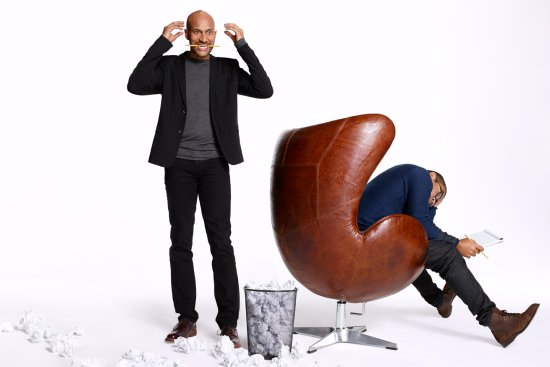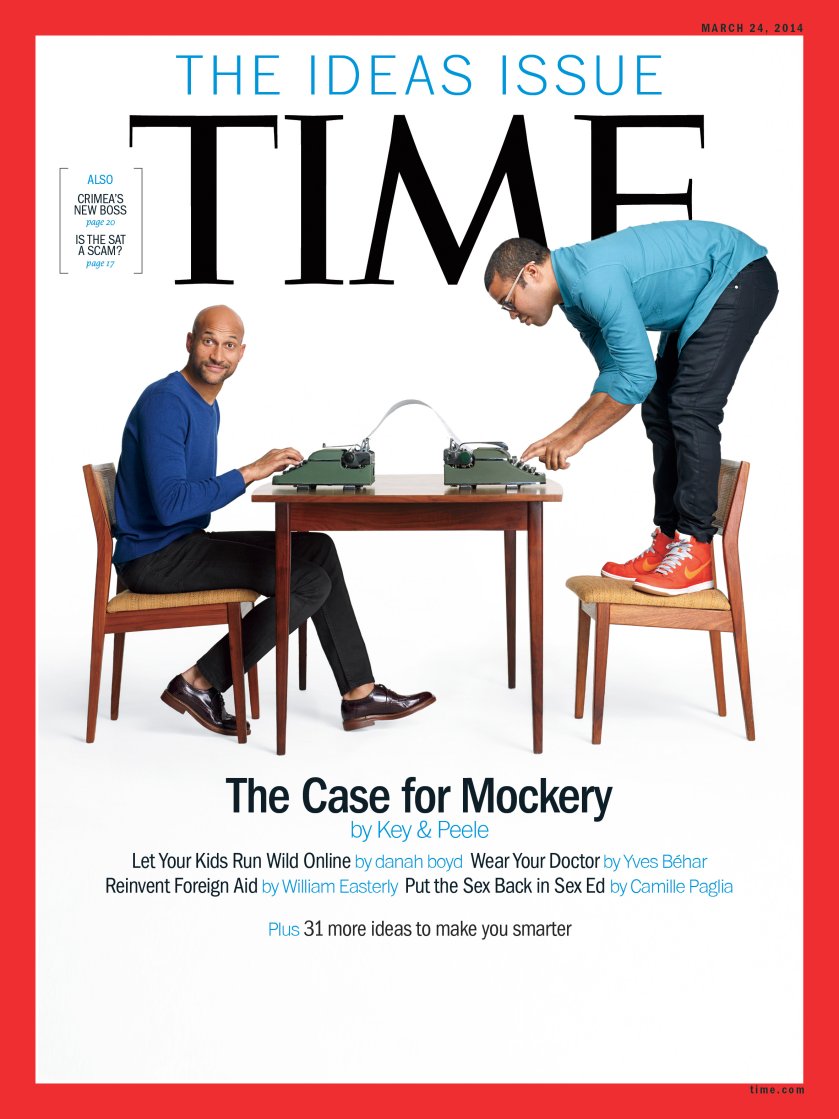
When did America get so politically correct? It’s when we refuse to mock a group that we truly act like bullies
Would you make fun of a burn victim? Well, we did. Sort of …
We’re comics. In the most recent season of our TV show, in a sketch titled “Insult Comic,” a traditional stand-up comedian professes that he is “going to get everybody” in his set (the guy toward the front with big ears, the fat guy, the woman with comically large breasts). That’s the phrase, isn’t it, when a critic wants to praise a comedian for the fearless nature of his or her comedy? That he or she “gets everybody”? That “nobody is safe”? One of the club patrons in our sketch, however, is a wheelchair-bound burn victim. “You skipped me,” he calls from the audience, with a robotic-sounding artificial larynx. “Go for it,” he says, “I can take it.”
But can we, as a society, take it anymore?
Today it seems that we live in a world of extremes. On one end of the spectrum, we have anonymous Internet trolls looking for opportunities to dole out cruelty with impunity. But in mainstream culture, it often seems we’re drowning in a sea of political correctness that lapped up on our shores a couple of decades ago and has yet to recede.
It’s amazing to think how popular television shows like All in the Family and Good Times might fare today in a Hollywood pitch meeting. Films like Blazing Saddles and Silver Streak wouldn’t make it past the development stage at a studio. Too edgy.
Somewhere along the line, we’ve forgotten the true purpose of humor: to help people cope with the fears and horrors of the world.
Sure, sometimes at Key & Peele, we swim in the shallow waters of pratfalls, airplane observations and simple old-school punnery. But what we strive for–and what we think more people should strive for–is deeper: to make fun of everything.
It can be scary. We don’t want to lose our audience. Can we make them laugh at a sketch about slavery? Terrorism? The Holocaust?
At the same time, though, it’s our duty. To not make fun of something is, we believe, itself a form of bullying. When a humorist makes the conscious decision to exclude a group from derision, isn’t he or she implying that the members of that group are not capable of self-reflection? Or don’t possess the mental faculties to recognize the nuances of satire? A group that’s excluded never gets the opportunity to join in the greater human conversation.
Luckily, a lot of people get this–at least when it comes to their own cultures. Like the burn victim in our sketch, they plead, “You skipped me! Do me!”
There was the half-Hispanic, half–Native American man who told Keegan recently just how much gold there was to be mined from his hybrid culture. A young Arab man told us how much he loves Karim and Jahar (a couple of sexually repressed Arab characters we play). “You gotta do more of them!” he begged. Gay and lesbian couples tell us to “keep going … There’s plenty to make fun of … Trust us!”
Where a lot of people get nervous, however, is when it comes to laughing at other people’s culture or perceived weaknesses. That’s when we worry that we’re being insensitive–that we’re being mean.
But ask yourself again what’s worse: making fun of people or assuming that they’re too weak to take it?
The white whale of comedy is still out there. The day we can make fun of a black lesbian dwarf with Down syndrome who’s in a wheelchair, and someone who isn’t a black lesbian dwarf with Down syndrome is able to laugh–instead of trying to protect the dwarf’s feelings–we can pack up our artificial larynxes and retire.
Key and Peele are the creators of their namesake television sketch-comedy show on Comedy Central
